Up to the challenge: a life in research
Professor Judy Raper has never shied away from a challenge.
August 1, 2018
As Deputy Vice-Chancellor (Research & Innovation) she has led UOW’s efforts to solve some of the world’s biggest, most complex problems.
Looking back on her 10 years at the helm of the University of Wollongong's research and innovation effort, Professor Judy Raper says the thing that has given her the greatest satisfaction has been bringing researchers from different disciplines together to find new ways to tackle difficult problems.
Professor Raper argues that it's in that interdisciplinary space, where researchers from the sciences, social sciences, humanities, engineering and business come together, that the most interesting and important research is being done.
"It's always at the edges of the disciplines that the good things happen," she says. "What I've enjoyed most is being part of the research culture and nurturing people to do the best research they can. The grants administration and all that you do at any university, but at UOW I've been able to be part of the action, so to speak. By seeing and knowing what researchers are doing, I've been able to put researchers from different faculties together and make a difference that way.
"I saw that during my time in the United States at the National Science Foundation, in the Engineering Directorate. At that time we were looking at infrastructure, but it wasn't just about the engineering and building a better road, because how people use the road is so important, and so it was really important to bring in the social sciences as well.
"It's not just a good idea to bring the disciplines together, it's absolutely necessary. If we just stay in our own disciplines and try to solve the same problems, then we only see the same solutions. We've solved the easy ones that we can do in our own disciplines. The difficult challenges that the world sees now are coming from the edges of disciplines, that's why it's interesting."
Professor Raper, who was appointed Deputy Vice-Chancellor (Research) in 2008, departs the role (since expanded to include Research and Innovation) at the end of 2018.
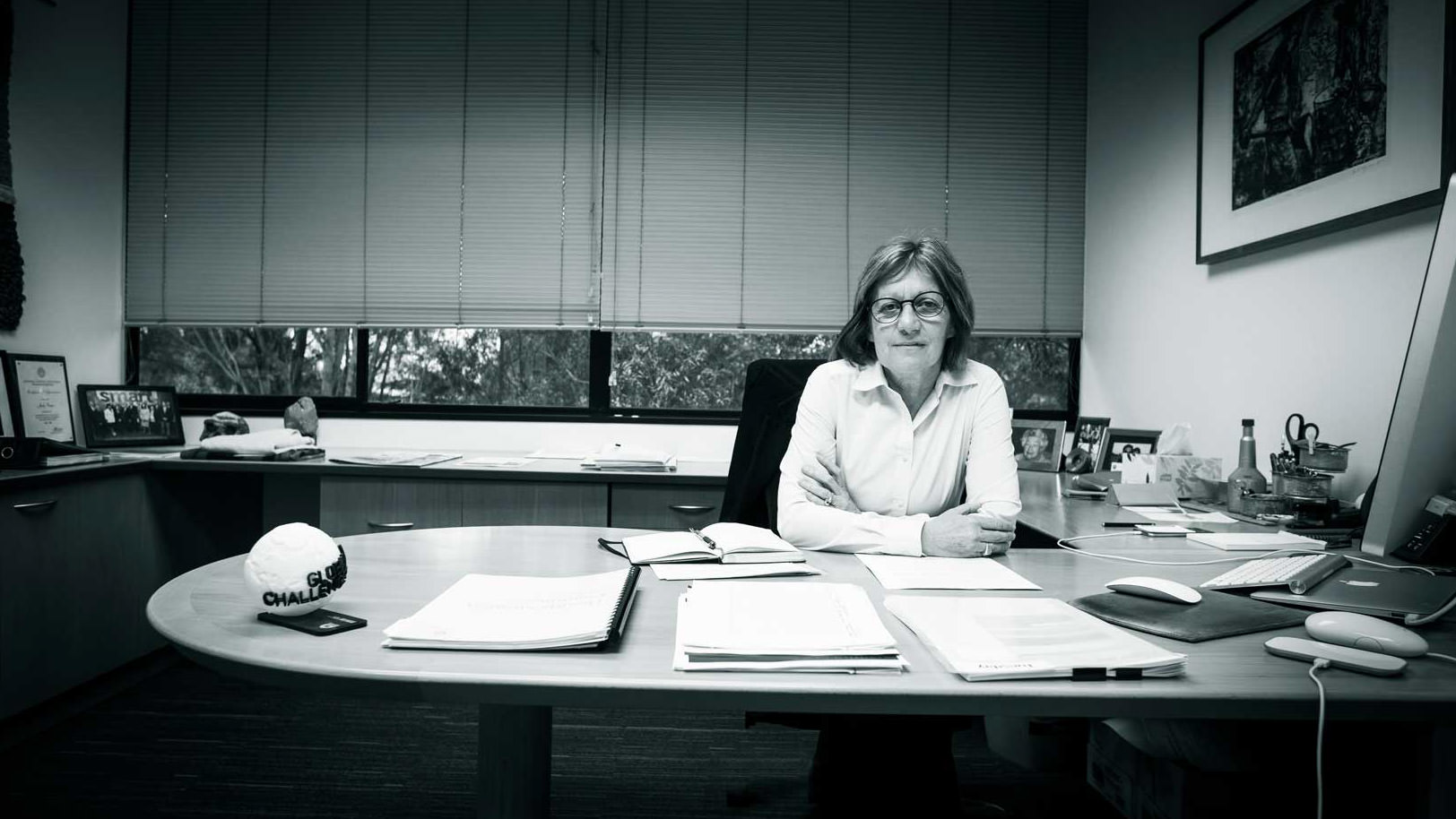
Rising to the challenge
Difficult challenges are nothing new for Professor Raper. As you'd expect from the first Australian woman to graduate with a chemical engineering degree from the University of New South Wales (UNSW), she's not one to shy away from a challenge. Indeed, it was a challenge that set her down the road towards becoming an engineer in the first place.
"I was good at maths and chemistry at school, and I went to a workshop at the University of NSW when I was in Year 10 or 11," she says. "It was with chemical engineers and was about industrial chemistry and chemical engineering and they made things and that was interesting.
"But the thing that really got me into it was one of my brother's friends, who said, 'Don't do engineering. It's very difficult'. So I said, 'Well …!' It made me want to do it. I really had no idea what it was all about, I just lucked into something that I was good at and enjoyed."
It turns out she was very good at it. Acknowledged as a world expert in the area of fine particle technology, particularly as it relates to air and water pollution, she now sits at the top of her profession with a long list of accolades and awards to her name.
In November 2018 she won the Ada Lovelace Medal for Outstanding Woman Engineer. In 2017, she became just the second woman to win the Chemeca Medal, the most prestigious award in chemical engineering in Australia and New Zealand.
The Australian Financial Review and Westpac named her one of Australia's "100 Women of Influence" in 2012, and Engineers Australia named her in its "Top 100 Influential Engineers" for three years in a row from 2013 to 2015.
She was awarded the Sheddon Pacific Award for most outstanding young chemical engineer in Australia in 1992, and awarded the Professional Engineer of the Year in 1998. In 2003 she was elected to the Australian Academy of Technological Sciences and Engineering and made an Honorary Fellow of the Institution of Engineers Australia.
Prior to joining UOW as a Deputy Vice-Chancellor, she served as the first female Dean of Engineering at the University of Sydney, as Division Director for Chemical, Bioengineering, Environmental and Transport Systems at the United States' National Science Foundation in Washington, and Department Chair of Chemical and Biological Engineering at Missouri University of Science and Technology.
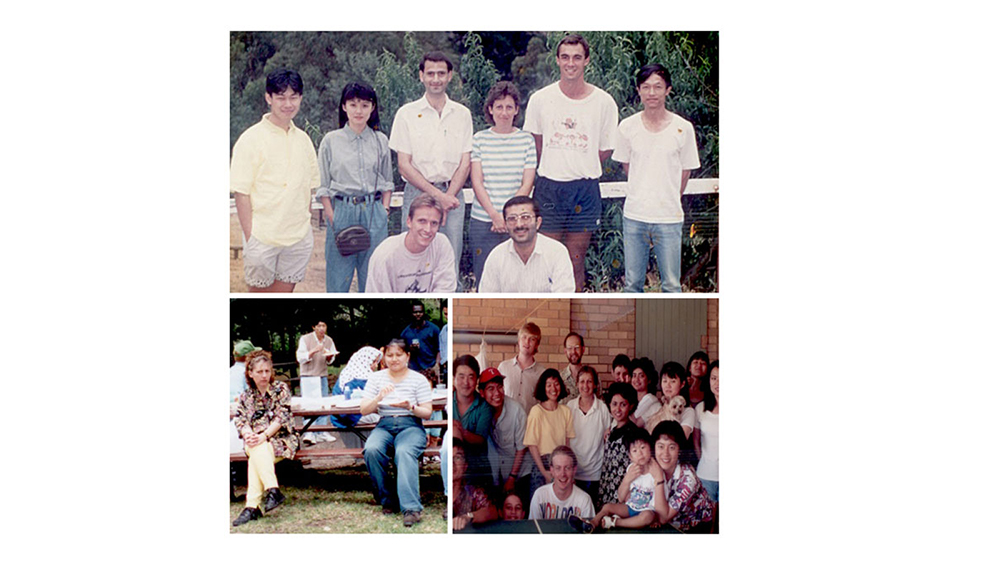
No job for a woman
It's an impressive resume, and one that you don't get without being willing to take on some big challenges. Some of her toughest came when she was just starting out.
"After I graduated I couldn't get a job for love or money," Professor Raper says. "I did pretty well, 2nd class honours, a 2.1 [2nd class, 1st division honours], but I went to lots of interviews, and got lots of, 'Oh, we wouldn't offer you a job!'
"Mt Isa Mines said, 'We wouldn't offer you a job because there are a lot of ladders and you have to wear hard hats'. Arnott's Biscuits had me in for an interview and said, 'We're not going to offer you a job because you'll get pregnant and have a baby'. I was very quick with my response, I said, 'Look, at least I'll give you nine-months' warning. If you offer the job to somebody who rides a motorbike you never know when they're going to go!'
"It didn't make a difference."
Undeterred, with one path blocked she found another way forward, returning to university. "I did a PhD and after that it was a lot different. You have a specialisation in something that you're better than anybody else in the world at."
Her PhD specialisation was in distillation columns for refining petroleum. "It was in the measurement of bubble and droplet size on sieve trays in distillation columns," Professor Raper says.
"The gases go up and the liquids come down and in the middle there's all this froth and bubbles and droplets, and I measured bubble size and droplet size. It was pretty esoteric and didn't make much difference to the better operation of distillation columns - so not very practical either - but it led me on to particle technologies. I went to the Atomic Energy Authority in the UK and worked on particle technology."
Professor Raper then took up a position at the Atomic Energy Research Establishment at Harwell, the United Kingdom's main centre for atomic energy research and development, while carrying out postdoctoral research at the University of Cambridge. Her research focused on particle technology and how the characteristics of fine particles affect air pollution in a nuclear application.
On her return to Australia, she joined the University of Newcastle (UON), applying her knowledge of particle technology and air pollution control as it applied to power stations and to coal mining dust suppression, an important issue in the coal-mining region.
"What I enjoy about research is the fact you're doing something different, that it's new questions all the time and that there are always questions to answer," Professor Raper says.
"And the eureka moments when - 'oh wow' - something happens that you didn't expect. And it's the things that you don't expect that are often the most important. Like if, on a graph you've got one outlying point the temptation is to say, 'Oh that was a mistake', but you know it's probably the most important point you'll ever get and it's going to tell you something interesting."
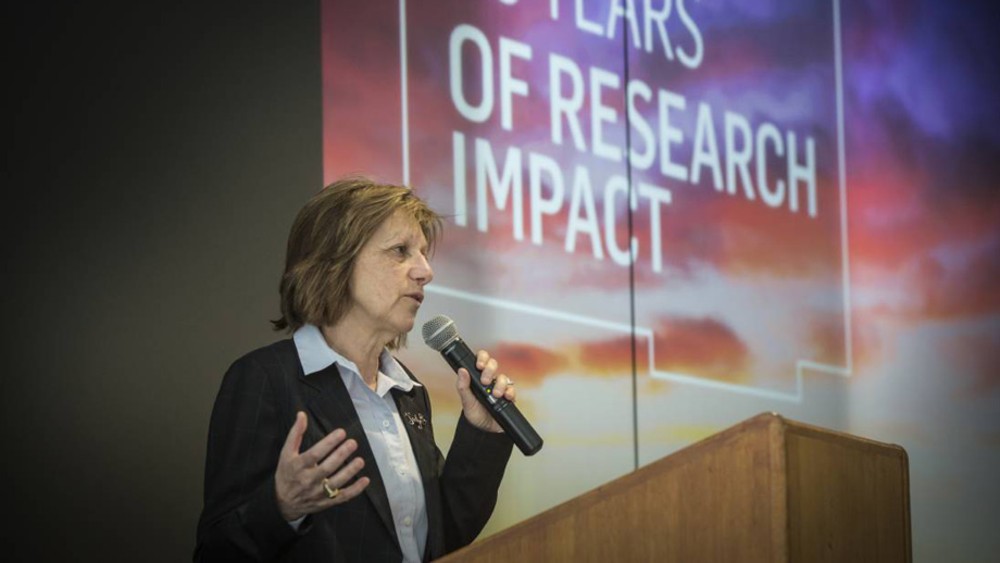
Innovation through diversity
After teaching at UON and UNSW, where she established and led the Centre for Particle and Catalyst Technologies and headed the Department of Chemical Engineering, in 1997 Professor Raper joined the University of Sydney as Dean of Engineering, the first woman to hold that role.
"I found I was pretty good at getting the best out of people, and perhaps that is one of my strengths. I enjoy it, and that's why a role like this [Deputy Vice-Chancellor Research and Innovation] has been so much fun because it's about getting the best out of people."
A big part of getting the best out of people involves putting the right people together; taking a strategic viewpoint, seeing where people's talents and expertise complement each other, looking for opportunities for synergy, bringing a diversity of knowledge and experiences together.
"If you bring people with different ways of thinking together it leads to better outcomes," she says. "That's how you get innovation in industry and innovation in academia - through diversity. That's why I really think students should be exposed to students and staff from other faculties as well."
As an example of what can happen when you put the right people together she points to the Solar Decathlon, an international competition that challenges interdisciplinary teams of students to design and build energy-efficient, cost-effective, solar-powered houses. Under the guidance of Senior Professor Paul Cooper, Director of UOW's Sustainable Buildings Research Centre, UOW teams have been hugely successful in the competition, winning the event in 2013 and following up with second place in 2018.
"The Solar Decathlon all goes back to when Paul Cooper had that whole idea of retrofitting buildings to make them energy-efficient and sustainable. We put together a funding proposal, back in the day, for resilient and sustainable communities. I put Paul Cooper together with [human geographer] Lesley Head and that helped start all of what we're doing in that area now," Professor Raper says.
"The funding proposal wasn't successful, it was just the first vision, but it led to the Sustainable Building Research Centre and to the Solar Decathlon success. It's been great to see it blossom."
Other examples of this approach that she has fostered at UOW include Global Challenges, which draws together researchers from different disciplines to tackle complex, real-world problems; and SMART Infrastructure Facility, which brings together experts from transport, water, energy, economics and modelling and simulation to tackle infrastructure issues.
"The ARC Centre of Excellence for Biodiversity and Heritage is another. I was the one who said you should include the humanities and made sure [art academic] Amanda Lawson was part of it alongside [archaeological scientist] Bert Roberts. So it's got the humanities and the arts as well as the science, and that's very satisfying."
Professor Raper has applied a similar approach to the innovation side of her portfolio, where she counts the iAccelerate business incubator and Advantage SME, which brings businesses - including manufacturing, engineering, ICT, financial services, health and aged care - together with university researchers.
"Innovation comes about through thinking differently, so we encourage innovation by doing things differently," she says. "Impact and innovation are things that everyone is talking about now, and are certainly important for the agenda of the country.
"And we were way ahead in that area because we've been talking about impact for five years. And iAccelerate was way ahead of the other accelerator and incubation hubs that are popping up all around Australia. We were one of the first."
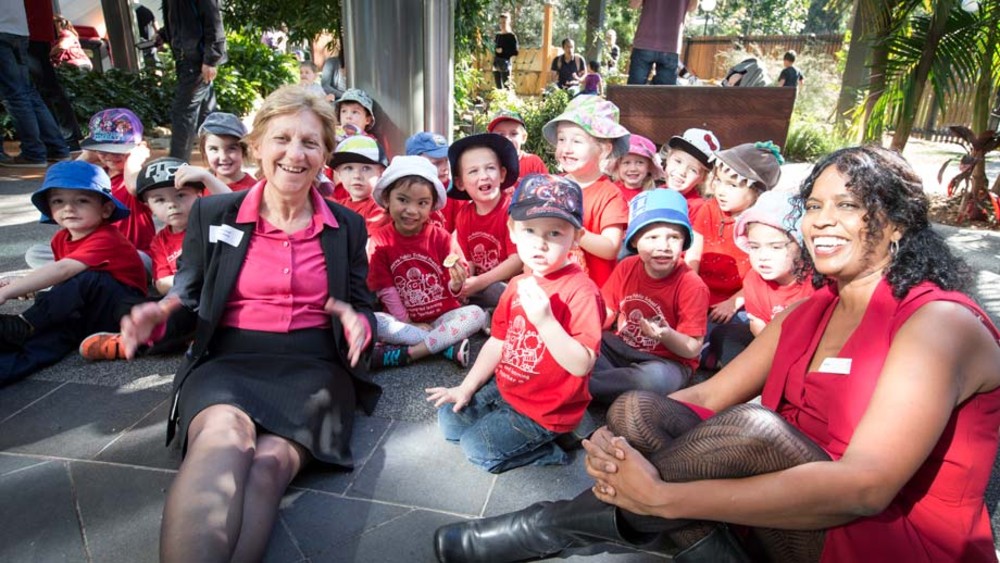
Getting on with the job
Among all the awards Professor Raper has to her name, perhaps the one that speaks most about her contribution to engineering - and to female engineers - is one she hasn't won. Every year the Judy Raper Award for Leadership, open to female alumnae from the UNSW Faculty of Engineering, is awarded for effective leadership "characterised by passion and commitment, setting bold objectives and achieving results, and most importantly, motivating and mobilising the talent of others for the benefit of the discipline/profession and the community at large".
"And I didn't donate money to them!" she laughs. "It's nice because the award is for someone who is a leader and has helped to nurture and bring on the profession, so it recognises the fact that I am a nurturer.
"The first person to win the award was Rose Amal, who was one of my students - and I'm her daughter's godmother, so she's a good friend as well. She got an AC [companion of the order of Australia] last year at the Australia Day Awards, which was one of my proudest moments."
For all the awards she has won herself, it speaks volumes that Professor Raper - invariably described by colleagues as "humble" and "down to earth" - lists a friend's success rather than one of her own as one of her proudest moments. As a woman who has achieved so much in fields that are still male-dominated - engineering and senior academic leadership - Professor Raper continues to serve as a role-model for those following in her footsteps.
"I've just been myself," she says. "I haven't tried to be a role model or anything; I've just concentrated on raising a family and working, doing my best in everything I do. And that's all you can do.
"I've used the fact that I'm a woman in a traditionally male role when it's been good for the organisation. For example, when I became the first female Dean of Engineering at Sydney, the publicity was good for the university and for the faculty and so I made use of that. Otherwise I've not worried about it and I've just got on with the job. Just enjoyed it and not been afraid to ask questions or have my say.
"I found the SAGE [Science in Australia Gender Equity] initiative difficult because when I was a student and a young engineer I was of the camp that I didn't want any special treatment. I didn't want to know about networks. But then when I became a Dean I didn't have anybody to talk to.
"I've never had a big social life because I've had children and been working and I've concentrated on those aspects. So I felt it when I became a Dean and can see now how important having a network can be. I know that it's divisive. Some people really need it. Some people hate it. I realise the importance of it, and I don't want to play down the importance, but I found it difficult to step into that role."
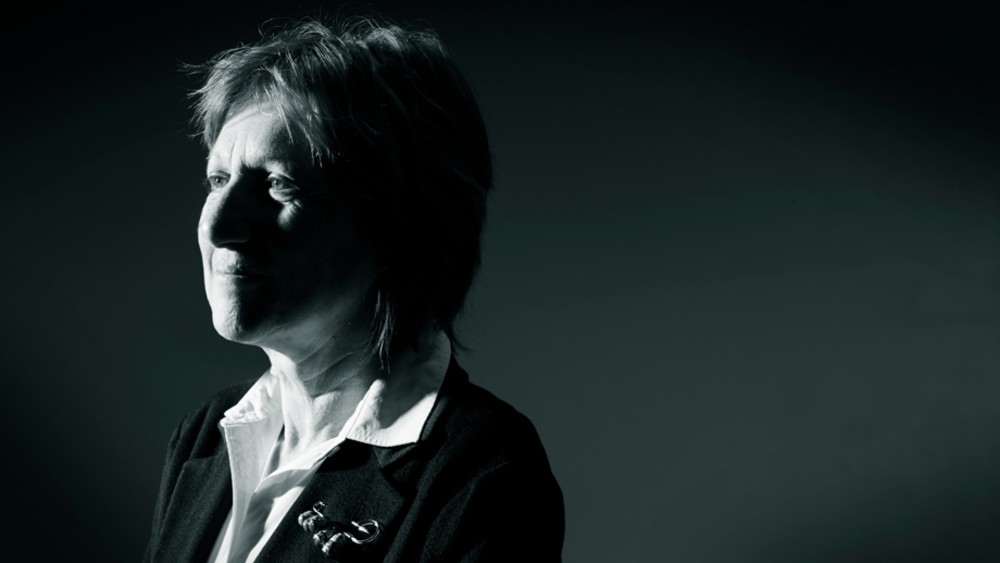
Problem-based learning
When she leaves UOW, Professor Raper won't be heading into comfortable retirement. Instead, and true to form, she'll be stepping out of her comfort zone, taking on another challenge.
"I'm going to London to join a start-up," she says. "It's a start-up engineering initiative run by the PLuS Alliance, a partnership between UNSW, King's College London and Arizona State University. Right now we have no students, no staff, no curriculum, no campus and no governance, but within two years hopefully we'll have some students and all of those things."
The school will offer a hands-on problem-based approach to learning, an approach Professor Raper has long supported, first as Dean of Engineering at the University of Sydney, where she revolutionised the undergraduate engineering program, then at UOW where she championed that approach with the Solar Decathlon project among others.
"It's a modern engineering program where we'll teach innovators and entrepreneurs of the future. It's just one discipline, engineering design, and it's going to be student led and centred on problem-based learning and work experience. There'll be no lectures; we're going to have modules - games I call them - to be done before you do your project so that you've got enough knowledge to do it.
"I'm excited because at UOW we've been talking about start-ups and how important it is for people to follow their passion and try things. I'm lucky because there's little risk to me really as I'm at the end of my career, but it's a great opportunity and a real challenge. I'm inspired and energised."